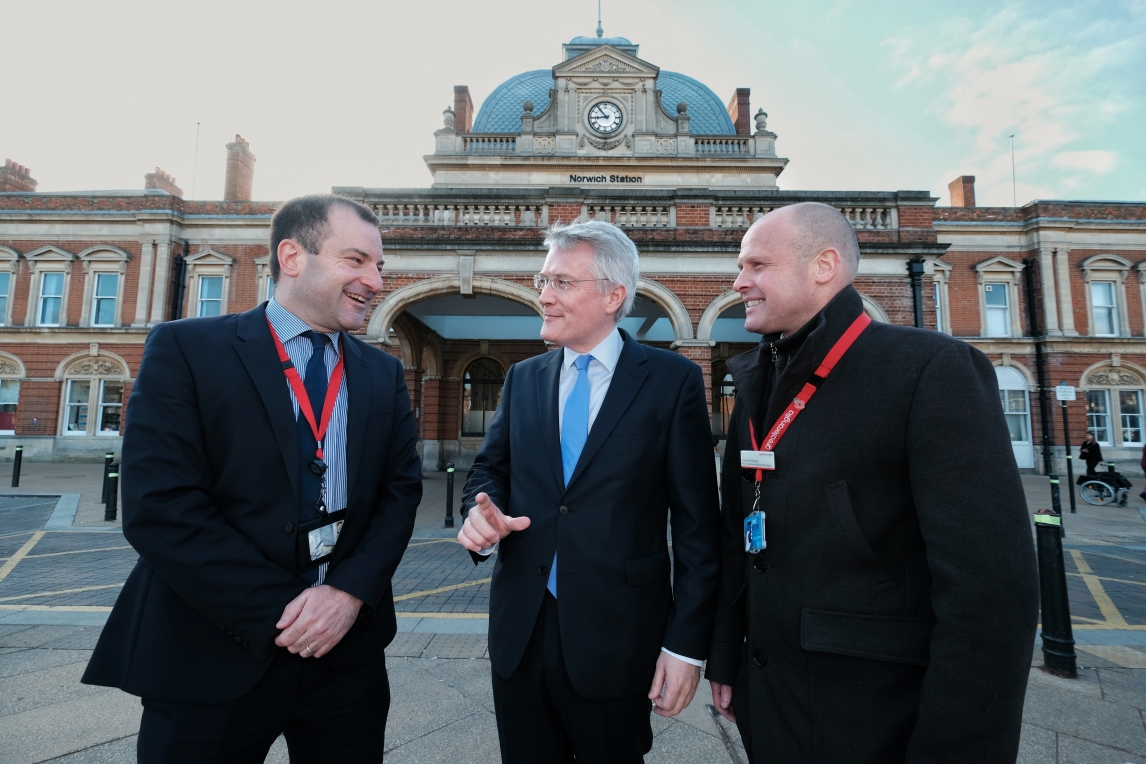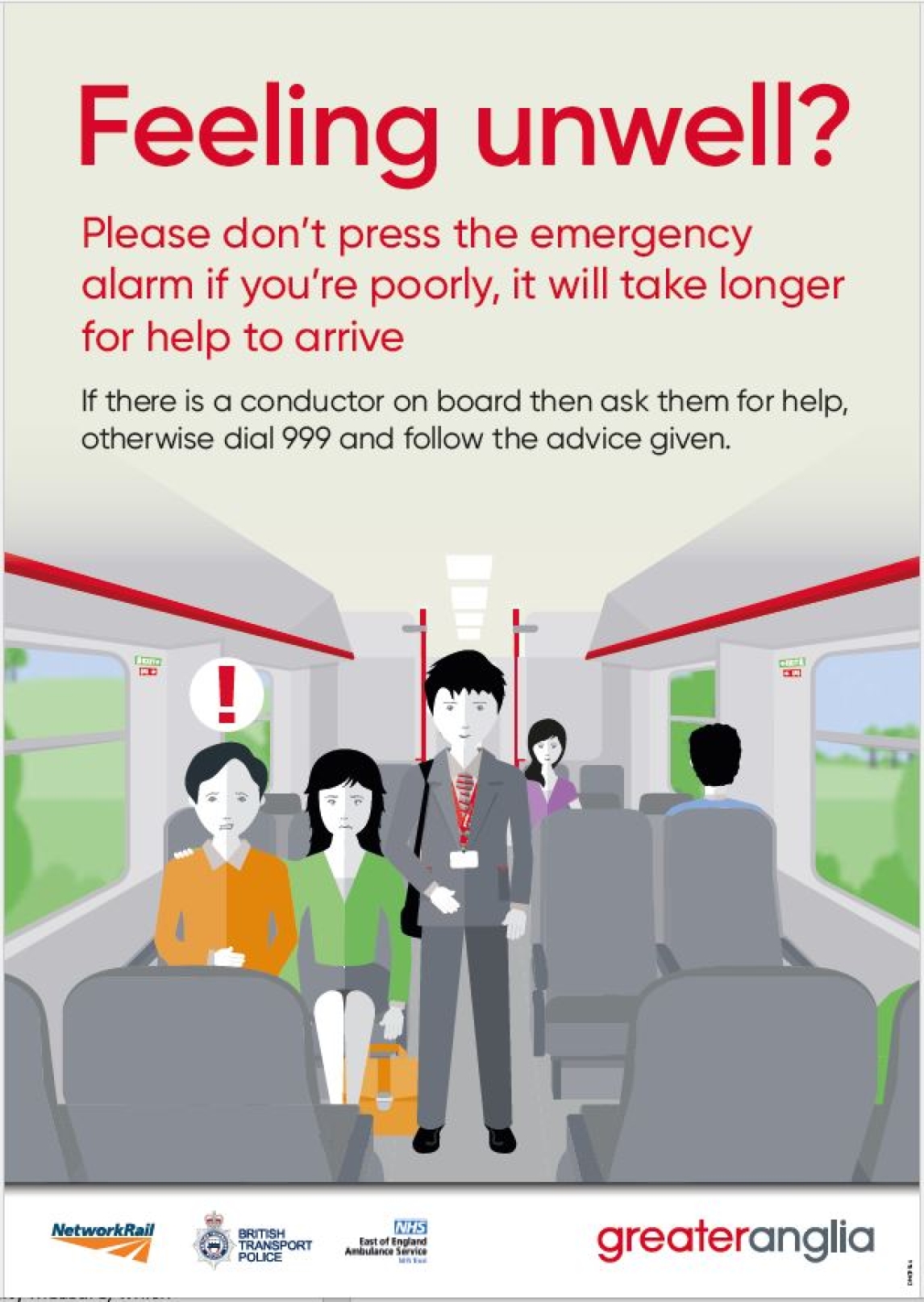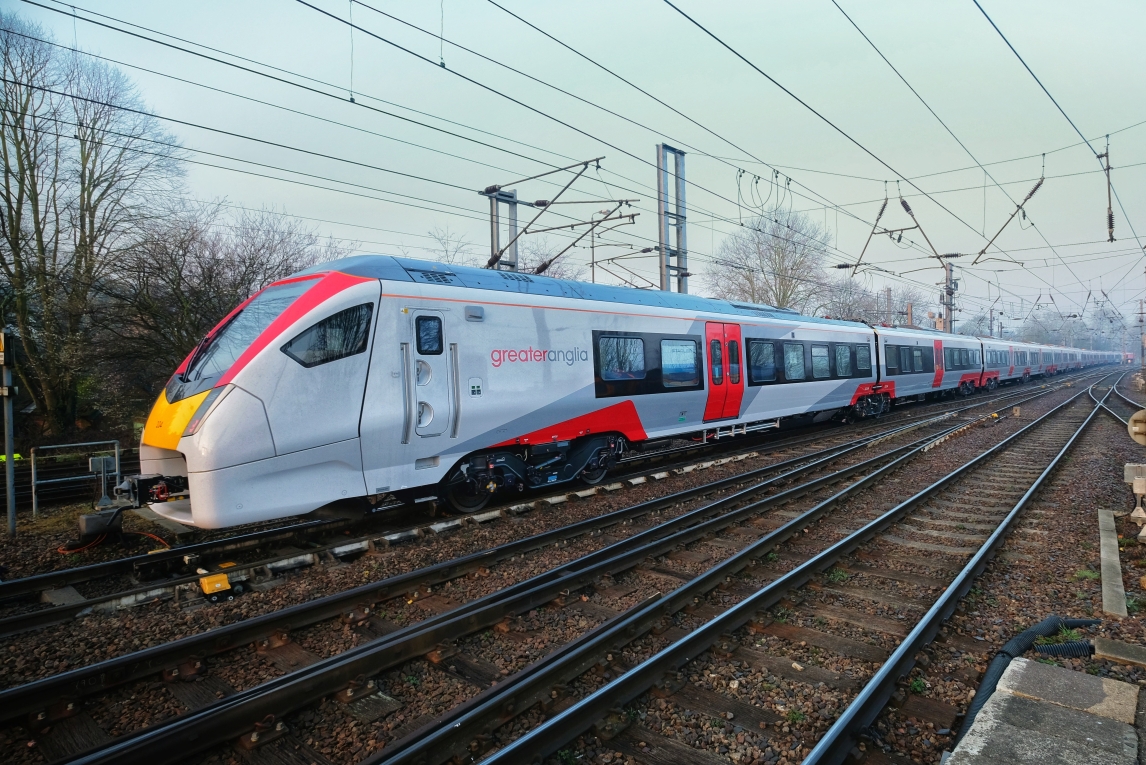Published on: Wednesday, 24 April 2019
Last updated: Wednesday, 24 April 2019
A blog by Jamie Burles, Greater Anglia Managing Director
Earlier this month, I spent a morning with the Rail Minister, Andrew Jones, who visited Greater Anglia to help us launch Delay Repay 15. From now on, customers delayed for 15 minutes and over will be able to claim compensation. I’m really happy we’ve been able to bring this in for our customers.
Under Delay Repay 15, you can claim compensation if you’re delayed by between 15-29 minutes, unlike before, when only delays of over 30 minutes were eligible for any redress. You can now get 25 per cent of the cost of a single ticket or half that for a return ticket in compensation. The amount of compensation you can claim goes up if you are delayed by over 30 minutes.
Delay Repay 15 wasn’t included in our franchise agreement, which is our contract with the Government to provide a rail service in East Anglia. However, we knew that our customers would really like it, so we’ve worked hard with the Department for Transport to bring it in as soon as possible. In reality, I hope we don’t need to use it too much, because what we really want for our customers is a very reliable and punctual train service. And for the first four months of this year, we’ve been getting better at providing that.
Our latest four-weekly PPM (Public Performance Measure) punctuality statistic was 91 per cent on average for the whole of the Greater Anglia network – that means over nine out of ten trains are running on time. This puts us in the top ten for punctuality across the whole of the country. On a line by line basis it’s even better for many of our routes, which are in the mid to high 90s. Our top performing routes in March were Norwich-Sheringham, at 96.9 per cent, Norwich-Lowestoft, 96.1 per cent, Marks Tey-Sudbury, 95.9 per cent, London-Colchester/Clacton/Walton 94.9 per cent and London-Southend/Southminster 94.3 per cent. Performance on the Ipswich-Felixstowe line was the best it has ever been, at 94 per cent.
We’ve been working hard with Network Rail to improve performance and it’s good to see we’re making some headway. Our aim is to get punctuality into the 90s for all of our routes. On our West Anglia route, between Cambridge and London Liverpool Street, performance in March was 86.7 per cent, but the first three months of this year have improved on 2018, up from 85.7 per cent to 87.8 per cent. Network Rail is making adjustments to the speed restrictions on parts of the route, which will enable us to keep our trains running to schedule better. Our operational and customer service teams are also examining in detail what causes every single minute of delay, so they can prevent similar delays reoccurring. Improvements include adjusting the stopping patterns of trains slightly to prevent persistent delays. The work we’re doing to improve punctuality on the west of our network is multi-layered and is being heralded within the industry as best practice - something I am proud of as managing director.
We are now also seeing punctuality improving on the Norwich to Cambridge line, following work by Network Rail to remove a major speed restriction, relating to track condition, which had been by far the primary cause of delays on the route.
You may have seen that the rail industry has introduced another official punctuality measure, which records punctuality for each service at each station. If you look on our website you’ll see that we track our punctuality in many different ways. Whichever way we measure it, the main thing for us is that we want to make sure that more customers arrive at their destination on time, or even early.
Currently about two thirds of reasons for delays are due to factors beyond our direct control. About 60 per cent are due to problems with the infrastructure, such as tracks, signals and overhead wires, or external factors such as weather or trespassers on the line. These are all the responsibility of government’s national rail infrastructure provider, Network Rail, to manage. A further ten per cent are due to other train operators, including freight train companies. That leaves around 30 per cent of delays within our control. Of this 30%, quite a proportion is classed as passenger-related delay. This can range from anti-social behaviour such as drunkenness or fighting, to passengers maliciously pulling the emergency stop handle or forcing open the doors, plus fare evasion. A passenger unfortunately falling ill also sits in this category.
We’ve looked at how we can address all of these different issues. We work very closely with the British Transport Police to tackle anti-social behaviour on our trains and at our stations. More of our on-train and station colleagues are being equipped with badge cams, which record any interaction with disruptive passengers so it can be given as evidence to police. We are currently refreshing the training we’re giving to our customer service staff so that they can best handle anti-social or vulnerable passengers. We also overhauled how we help ill passengers, setting up a new process in conjunction with the East of England Ambulance Service. You may have seen the posters, animation or announcements relating to this. This has very successfully cut delays caused by ill passengers by nearly 60 per cent – and more importantly, it means that ill passengers needing assistance are helped much quicker.
The next biggest factor causing delays that we control is train faults. Last year was a difficult year for us, as the Beast from the East extreme snow and ice damaged many of our old electric trains, and it proved tricky getting new parts for them, especially when one of our suppliers went out of business. There is also a nationwide shortage of diesel trains, which means that it’s difficult to hire replacements if our diesel trains need to be taken out of service for repairs, modifications or upgrades. These factors resulted in some trains either being cancelled or running as “short forms” with fewer carriages than usual. We’ve taken action to improve the situation and we’re fully focussed on maintaining our existing trains so that they’re as reliable as possible, even though some of them are nearly 40 years old. However, it’s also now not long to go until our brand-new trains start coming into service to replace all of our old trains, which should further improve performance.
We have recently taken on a new director of engineering, Martin Beable. He has a challenging role, as he is leading our engineers and technicians through a period of real change, preparing his team for the brand-new trains. The engineering department is dealing with complex challenges arising from our transformation programme. Some of our Norwich-based colleagues are seconded to Swiss train manufacturer Stadler, where they are learning how to maintain the 58 bi-mode and electric trains Stadler is making for us. At the same time, other members of our Norwich Crown Point team have been equally focussed on maintaining the existing trains, despite parts of the depot being a bit of a building site, as the depot is being significantly expanded and changed in order to facilitate the maintenance of the new trains, which have already started arriving there.
Martin is taking them back to basics, making sure that maintenance of key components such as motors, doors and wheels is especially good quality. As the new trains come into service, our engineering team will then have to prepare the old trains to be handed back to the leasing companies. All branding has to be removed from the trains, both inside and out, and any damage repaired. All in all, it’s an exceptionally busy and complex time for our engineering department, but they’re a great team and they’ve been producing a more reliable fleet during the first few months of this year.
So you can see it’s exciting times here at Greater Anglia, as we work every day to improve the service we give to our customers. Nothing makes me happier than to see trains arriving on time across our network because I know that is the number one priority of our customers.





